
Alphabetical Menu
Chronological Menu
|
Jungleland 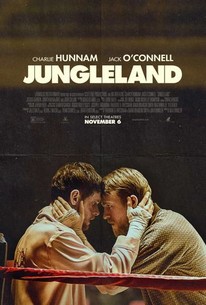 Stanley Kaminski (Charlie Hunnam) manages his brother, Walter a.k.a. Lion (Jack O'Connell), a boxer who has yet to strike it rich. They owe a lot of money to Pepper (Jonathan Majors), a drug dealer, so they agree to travel from Fall River, Massachusetts to San Francisco for a boxing match with a $100,000 prize. They have to escort a young woman, Sky (Jessica Barden), to Reno along the way. Jungleland is a captivating underdog story that charts familiar ground, but in a way that feels organic, for the most part. The screenplay by writer/director Max Winkler and co-writers Theodore Bressman and David Branson Smith works best when it focuses on the dynamics between the two brothers as they embark on their journey. Their relationship evolves and gets put to the test. The subplot involving Sky, who's being sex trafficked, and her romance with Lion feels a bit contrived, underdeveloped and unnecessary because there's already enough tension with out her and there's enough drama between Stan and Lion. Sky seems like she's just there as a character tacked-on to the plot to add more pathos and complexity, but it doesn't really add much of either ultimately. Similarly, Pepper comes across as a plot device and doesn't make for a very memorable character. It's fortunate, then, that Stanley and Lion remain compelling characters and, most importantly, palpably human. Except for an injury that Stanley sustains later in the film and unrealistically survives it and can still walk afterward, Jungleland feels true-to-life and emotionally engrossing. The final boxing match has a very heartfelt song, although, admittedly, it does spoon-feed the audience a bit too much with what they should think and feel. If only the filmmakers were to have trusted the audience's emotions more during that crucial scene. Audiences don't always need their hand to be held so tightly while watching a film. Charlie Hunnam and Jack O'Connell are both naturally talented actors whose charisma and rawness shines throughout Jungleland. They both succeed in finding the emotional truths of their role which allows you to care about Stanley and Lion as human beings, even when the screenplay doesn't tread new ground and has little to no surprises. It has become a cliche to complain about cliches, and it's not important that the filmmakers don't avoid cliches; it's more important how they the cliches and what feelings they bring to the audience. Like many sports films, i.e. Rocky, Jungleland understand that it isn't really about the sport itself, but it's about flawed characters and the innate struggles that they endure. Stanley and Lion have many flaws, and the more you get to know them as human beings, the more you're interested to know more about them and can empathize with them concurrently. At a lean running time of just 90 minutes, Jungleland is captivating and moving albeit somewhat uneven and occasionally contrived. 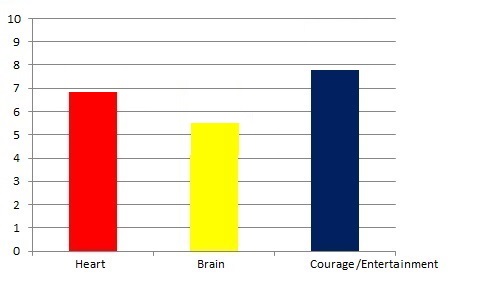 Kindred  When Ben (Edward Holcroft) brings his pregnant girlfriend, Charlotte (Tamara Lawrance) to meet his domineering mother, Margaret (Fiona Shaw), he announces that he's moving away with Charlotte to Australia to raise their baby together. Margaret gets angry at Ben and refuses to let him leave her. Ben dies after a horse injures him, and soon Margaret and Ben's stepbrother, Thomas (Jack Lowden), force her to stay at their home and look after her before she gives birth. Meanwhile, Charlotte has mysterious visions of crows.
On the surface, Kindred sounds like a cross between Rosemary's Baby, Get Out and The Birds. If you've seen any of those movies, you'll have a general sense of where the plot might be veering toward. The only question that remains while watching it is whether or not there's anything supernatural going on. Of course, just like in Rosemary's Baby, the pregnant woman sees a doctor (Anton Lesser) who may or may not have hidden motives. Writer/director Joe Marcantonio and Jason McColgan barely establish the relationship between Ben and Charlotte before Ben succumbs to his death early on. They do handle exposition rather well while providing some hints at the dark past of Ben's family, but there's nothing surprising because everything can be easily telegraphed from the very beginning. How many times do they have to show the audience the hallucinatory scenes with a crow? There's not nearly enough narrative momentum until later on in the film, but by then it's too little too late. From the very first frame, Kindred quickly becomes obvious and repetitive as it goes around in circles offering audiences very little to chew on. Hitchcock and Polanski at least knew how to create palpable suspense along with a thought-provoking story that trusts the audience's intelligence and imagination. Get Out also has those essential elements that turn a psychological thriller into something more than just the sum of its parts. This film feels like less than the sum of its parts and leaves you with very little room for interpretation by the end. Also, there's barely any creepiness to be found here. It's as though the filmmakers were so eager to combine their love of classic psychological horror films that they forgot to make one that lives and breathes with its own personality and life. There isn't one particular scene that stands out in Kindred. The performances and cinematography are decent, and it's also less bonkers and shocking than Midsommar and Hereditary, so at least there's that. At a running time of 1 hour and 41 minutes, Kindred is forgettable, dull and underwhelming. 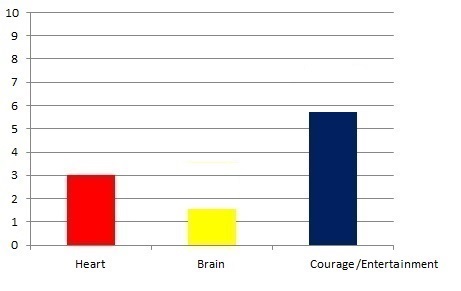 Let Him Go 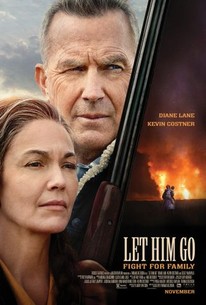 George Blackledge (Kevin Costner) and his wife, Margaret (Diane Lane), are still grieving the death of their son, James (Ryan Bruce), who died in a horseback riding accident three years ago. He and his wife, Lorna (Kayli Carter), have a son, Jimmy, who means a lot to George and Margaret. When Lorna marries Donnie Weboy (Will Brittain), she runs off with him while taking Jimmy with with her. Margaret catches Donnie physically abusing Lorna and Jimmy, so she convinces George to drive from their home in Montana to North Dakota to rescue their daughter-in-law and beloved grandson. Let Him Go begins as an engrossing, slow-burning drama before taking a nose dive as it turns into psychological thriller and even horror territory. Based on the novel by Larry Watson, the screenplay by writer/director Thomas Bezucha takes its time to show the road trip that Goerge and Margaret take to North Dakota. Those scenes do feel meandering, lethargic and tedious more often than not, but the nuances along with the gradual build-up of suspense helps to keep audiences mildly engaged. Some of the dialogue, though sounds a bit too on-the-nose, though, and it's easy to feel the wheels of the screenplay turning as George and Margaret get closer and closer to the Weboy family's home with the help of Bill Weboy (Jeffrey Donovan). Along the way they also meet a Native American, Peter Dragswolf (Booboo Stewart), who has an interesting backstory that's not flesh out enough. There are simply too many characters in Let Him Go, so it's unfortunately that the screenplay fails to provide a leeway or a window into any of their heart, mind and soul for the audience. At the inevitable confrontation between the Blackledge family and the Weboy family, Let Him Go takes a steep nosedive into campy, unintentionally funny B-movie territory while doing a poor job of introducing the audience to Blanche (Lesley Manville), the Weboy matriarch who's controlling, deranged and clearly dangerous from from very first moment she's on screen. Nuance, plausibility and logic get through out of the window during the film's last 30 minutes, and the final few moments try too hard to be poetic and moving, but fail because the emotions it tries to conjure up from the audience are unearned. On a positive note, it's worth mentioning the breathtaking, majestic scenery that becomes like a character in itself and enriches the film. Kevin Costner and Diane Lane give solid performances and provide charisma that rises them above the stilted, clunky screenplay. Through their interactions, George and Margaret like a husband and wife, and you can sense that there's an internal life inside of them. That's why it's too bad that the screenplay doesn't stop to explore those inner lives because the actors are clearly capable of opening that window. Lesley Manville seems to be having a lot of fun in her over-the-top role as Blanche, but the screenplay fails to bring her role to life, so she seems like a one-dimensional caricature rather than a complex human being. It's always great to see Manville sink her teeth into a different kind of role, but if only she weren't undermined by such a poorly written screenplay. She, Diane Lane and Kevin Costner deserve much better material. At a running time of nearly 2 hours, Let Him Go is often anemic and meandering with clunky, stilted dialogue and an increasingly preposterous, over-the-top third act. Only the scenery along with the charismatic and strong performances of Diane Lane and Kevin Costner keep the movie afloat.
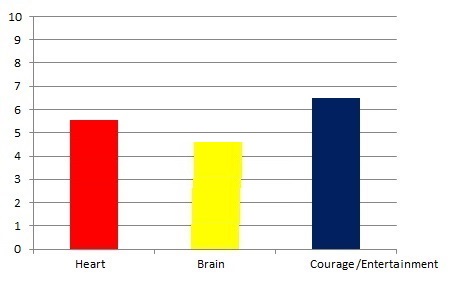 |